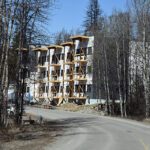Home »

Help shape the future of the Columbia River Treaty
Jaffray and area residents are invited to community workshops in early November to discuss the Columbia River Treaty (CRT) Local Governments’ Committee recommendations to the Province on the future of the Columbia River Treaty.
“These discussions will help shape how Canada and the United States manage the Columbia River in the future. Decisions that will be made about the future of the Treaty will influence water levels and reservoirs in this region for decades to come,” says Deb Kozak, CRT Local Governments’ Committee Chair and Councillor, City of Nelson.
The CRT Local Governments’ Committee wants you to attend the community workshop on Monday, November 4 in Jaffray at the Jaffray Hall (Jaffray Village Loop Road). Workshops are also being held in Golden, Nakusp and Castlegar.
“We have heard from area residents about their concerns and issues regarding the CRT and we have sought advice from experts and others to find the best solutions,” says Regional District of East Kootenay Electoral Area A Director Mike Sosnowski. “Now we want to share this information with Basin residents and hear their views so we can refine our draft recommendations.”
– 6:30 – 8 p.m. Provincial Workshop: The Province’s Columbia River Treaty Review team is seeking further feedback on their Draft Public Consultation Report as they prepare recommendations to Cabinet on the future of the Columbia River Treaty. Learn more at www.gov.bc.ca/columbiarivertreaty.
– 8 – 9 p.m. Local Governments’ Workshop: Review draft recommendations developed by your local governments on the future of the CRT. Learn more and download documents at www.cbt.org/lgcommittee.
These consultation workshops are free and registration is not required. You can join the workshop in Castlegar online on November 7 – but you must register. To find out more about the Community and Live Stream event visit: www.gov.bc.ca/columbiarivertreaty/events/2013-11.
You can provide feedback on the Local Governments’ Committee recommendations at www.surveymonkey.com/s/CRTLGC-Oct2013 or written feedback can be sent to CRT Local Governments’ Committee, Box 2029, Revelstoke, BC V0E 2S0. Feedback deadline is November 15.
The CRT Local Governments’ Committee, with support from Columbia Basin Trust (CBT), is working with, and on behalf of local governments through appointed representatives from the four regional districts in the Basin, the Village of Valemount and the Association of Kootenay Boundary Local Governments.
The committee is working together to bring regional views, values and interests with respect to the CRT to provincial and federal agencies. With the support of Columbia Basin Trust, the committee is helping Basin residents and local governments engage in decisions about the future of the CRT.
The Columbia River Treaty (CRT) is an international agreement between Canada and the United States to coordinate flood control and optimize hydroelectric power generation on both sides of the border. Under the 1964 treaty, three dams were constructed in Canada, including Mica, Duncan and Hugh Keenleyside. A fourth dam, Libby, was constructed in Montana. Its reservoir, the Koocanusa, extends 67 kilometres into Canada. Since its ratification in 1964, the CRT has influenced the management of the Columbia and Kootenay River systems in both Canada and the United States. Residents in the Columbia Basin, on both sides of the border, will be directly affected by any decision related to the future of the CRT and will shape transboundary water management across the entire Columbia Basin for decades to come.
The CRT has no official expiry date, but has a minimum length of 60 years, which is met in September 2024. Either Canada or the United States can terminate many of the provisions of the agreement effective any time after September 2024, provided written notice is filed at least 10 years in advance (2014). While no decision has been made by either Canada or the United States on the future of the current treaty, given the importance of the issues, and the approaching date of 2014, both countries are now conducting studies and exploring future options for the CRT.
Learn more and stay informed:
· Subscribe to the Provincial CRT Review e-letter at www.newsroom.gov.bc.ca/enews-subscribe.html
· Join the discussion on Twitter #crtreaty and Facebook at www.facebook.com/#!/pages/Columbia-River-Treaty-Review/471508369560835?fref=ts
· Take a tutorial on your own schedule at www.cbt.org/crt/tutorial
· Learn more at www.cbt.org/crt
This short video presents key facts on CRT history: www.cbt.org/newsroom/?view&vars=1&content=Multimedia&WebDocID=2515
This brochure provides an overview of the CRT:www.cbt.org/crt/assets/pdfs/CRTbrochure.pdf
This report contains a summary of dam and reservoir issues identified by Basin residents: http://www.cbt.org/crt/assets/pdfs/CRT_Dam_and_Reservoir_Issues.pdf
Learn more about the CRT under Frequently Asked Questions on CBT’s website at www.cbt.org/crt/FAQ.html.
Above photo: Libby Dam – The Libby Dam in Montana was constructed under the Columbia River Treaty and created the Koocanusa Reservoir: 67 kms of the reservoir extend into BC. Photo courtesy of BC Hydro







